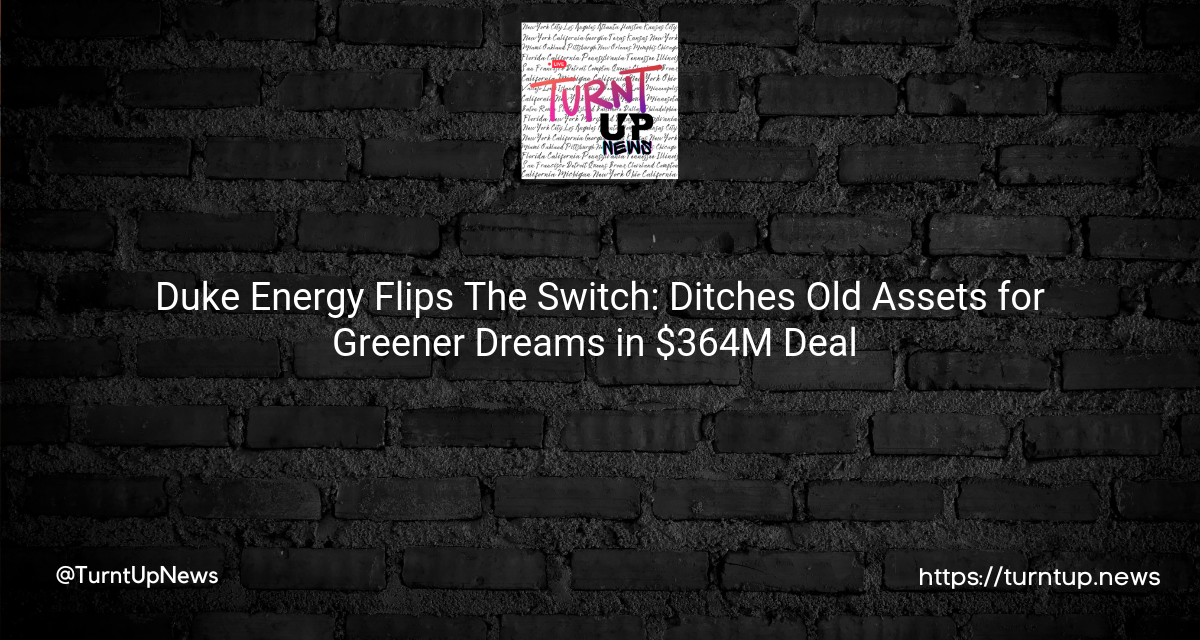💡 Duke Energy Flips The Switch: Ditches Old Assets for Greener Dreams in $364M Deal 🌿
TL;DR; Duke Energy’s done playing monopoly with their distributed generation business, handing over the keys to private equity firm ArcLight Capital Partners in a $364 million deal. The move is not just about money bags – it’s part of Duke’s gameplan to integrate over 30,000 megawatts of renewable energy into their system by 2035. As they say, out with the old, in with the new, right? 🔄
🎙️ Power players in the energy industry, like Duke Energy, are switching their strategy cards faster than a pro poker player in Vegas. Duke recently revealed that it’s cutting loose its commercial distributed generation business, selling it to ArcLight Capital Partners for a cool $364 million. Cash rules, sure, but what’s behind the decision? 🤔
The business sale includes everything from the operating assets of REC Solar (snatched up by Duke in 2015, remember?) to a development pipeline and an operations and maintenance portfolio. Even distributed fuel cell projects managed by Bloom Energy are in the mix. It’s like Duke is holding a garage sale, and everything must go! 🚚💨
Why is Duke on this sales spree, you ask? Well, they’re expecting a pretty penny in return – about $259 million. But don’t get it twisted – this isn’t just about pocketing a profit. The proceeds from the sale will be used to help Duke introduce more than 30,000 megawatts of regulated renewable energy into its system by 2035. Duke’s saying adios to the old and hola to the green – a transition that’s becoming pretty common among electric utilities in the good old U.S of A. 🇺🇸
These companies are streamlining their operations, moving away from fossil fuels, and shifting towards cleaner energy sources like solar and wind to meet climate goals. Are they too late to the party, or just in time? You tell us!
Peers of Duke such as FirstEnergy and NiSource have also been selling stakes in their subsidiaries this year. It’s almost like there’s a yard sale competition among these energy giants. Are they all trying to clean up their acts, or is there a bigger game in play?
So, what does this all mean for the future of our energy systems and climate goals? Is Duke’s sale a sign of a more sustainable, renewable energy-focused future, or just a tactical business decision in a rapidly changing industry? As the saying goes, “the times, they are a-changin’,” and it seems Duke Energy is ready to change with them. But is this the beginning of a wider trend among energy companies, or just a one-off?
And here’s the million-dollar question: as we witness these corporations shift gears, how will this impact the average consumer’s monthly power bill and access to renewable energy sources? The ball’s in your court. 💬💭





